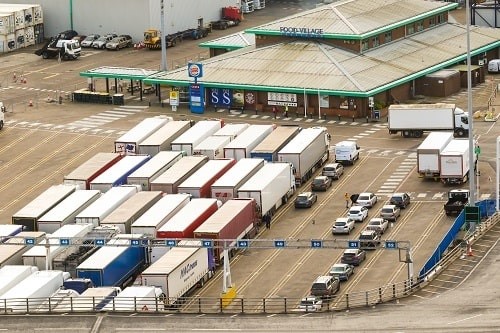Unless you’re a political junkie or have been living on another planet in recent times, there is a sense of weariness about the apparently endless shenanigans surrounding the UK voting in a referendum to leave the world’s largest multicountry trading bloc and the way in which that is being haltingly translated into action by Members of Parliament.
Opinion
For better, not for worse
And if you live outside the UK, just try to imagine how tedious all this is for those of us who don’t (or at least, don’t yet, applications for passports issued by Ireland, France and elsewhere are at record highs). However, Brexit does represent a seismic change to the way in which the UK is governed and operates, with huge potential implications for the health and safety regulatory framework as well as relationships in business and beyond.
While there is a risk of the British Safety Council – a charity that is required, expected and committed to being non-party political, non-partisan – straying into a fraught political debate, there are some very practical matters that we should address.
Since the 1974 Health and Safety at Work Act, Britain has led the world in workplace safety. Safer workplaces have underpinned Britain’s prosperity, ensuring workers can return home unharmed at the end of each day. This is a global success story. British standards have been adopted in the Middle East, Asia and across the Commonwealth, over a third of the global population. Underpinning these world-class standards is almost 50 years of EU legislation.
 Brexit has huge potential implications for the health and safety regulatory framework in the UK. Photograph: iStock/Ben Gingell
Brexit has huge potential implications for the health and safety regulatory framework in the UK. Photograph: iStock/Ben Gingell
The UK’s alignment with EU law was driven by Margaret Thatcher’s vision of a single market, and the recognition that for such a market to be truly free, allowing frictionless trade, it required uniformity of standards and their enforcement in the production and provision of goods and services, along with freedom to move them across borders, and hence freedom for people and finances to also move across those borders.
Despite some unpleasant rhetoric about immigration marbling the Brexit debate and the defining of so-called ‘red lines’, the benefits of free trade within the EU always have included freedom of movement.
Some government ministers have expressed hopes for a dilution of health and safety law post-Brexit, with talk of removing ‘burdens on business’ and the UK becoming the ‘Singapore of Europe’. It is this aspect of Brexit that the British Safety Council has, correctly, taken a strong stand on.
In or out of the EU, we consistently argue for powerful and proportionate legal protections to address the unnecessary, personally and socially harmful, toll of accidents and ill health – this is the real ‘burden on business’ that has nothing to do with bureaucracy and red tape and everything to do with incompetence, inefficiency and the consequent damage to people and to social wealth.
As part of the post-war European settlement, learning the lessons of the rise of fascism and the destruction that wreaked, we have benefited from a period in which human rights were both enshrined in law and largely respected.
The health and safety of every worker, of everyone potentially affected by work activities, is worth defending, improving and striving for as part of that human rights landscape. That is what we and our many member organisations proudly do in the UK and around the world.
As the Brexit story unfolds, whatever the final disposition of the UK in trade and in law, the British Safety Council will continue to be a strong, clear voice pointing out that every review of our framework, right up to the most recent by independent authorities such as Professor Löfstedt Reclaiming health and safety for all, has declared the health and safety system to be fit for purpose, well designed and operating effectively.
We shall work in partnership with our fellow health and safety organisations and our members to ensure that while Brexit may mean change, in health and safety terms it should only mean change for the better, not a race to the bottom in search of some mythical financial gain. We shall remain steadfast, calling on the government to ensure that nobody is less safe at work as a result of Brexit. The British people voted to leave the EU; they did not vote to make their workplaces and their lives more dangerous.
Lawrence Waterman OBE is chair of the British Safety Council
OPINION

The air we breathe is all our business
By Nicky O’Malley, director of corporate partnerships, Global Action Plan on 01 June 2023
Businesses have a vital role to play in improving air quality – and the UK’s Clean Air Day on 15 June is a great opportunity for companies to begin or renew their efforts in this area.

All jobs greener: why we need workforce transformation for a sustainable future
By Martin Baxter, deputy CEO, IEMA (Institute of Environmental Management & Assessment) on 01 June 2022
The shift to a green economy will create green jobs within new and emerging sectors, while those working in existing sectors will have to gain the requisite green skills to take advantage of the business value-creation opportunities that come from embedding sustainability across the whole organisation.

Preventing chemical pollution: how the UK is falling behind Europe
By Ruth Jones MP for Newport West & Shadow Minister for Agri-Innovation and Climate Adaptation on 01 June 2023


